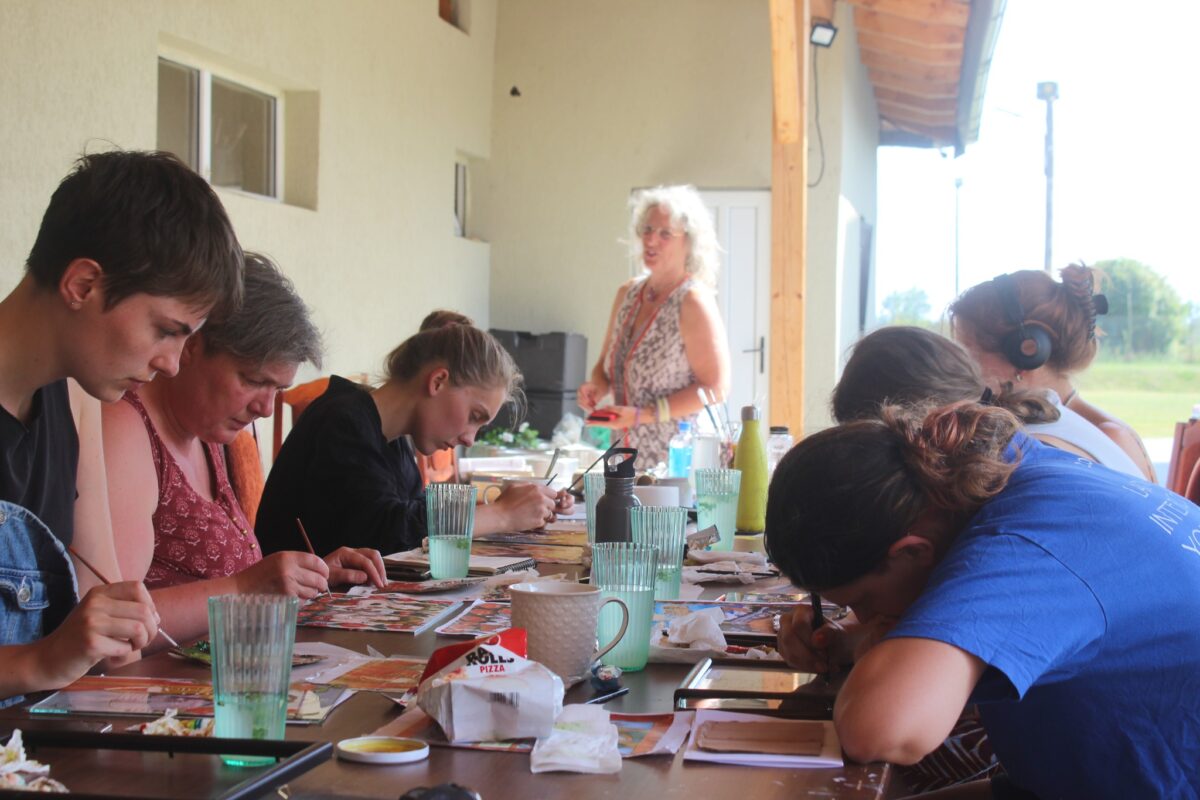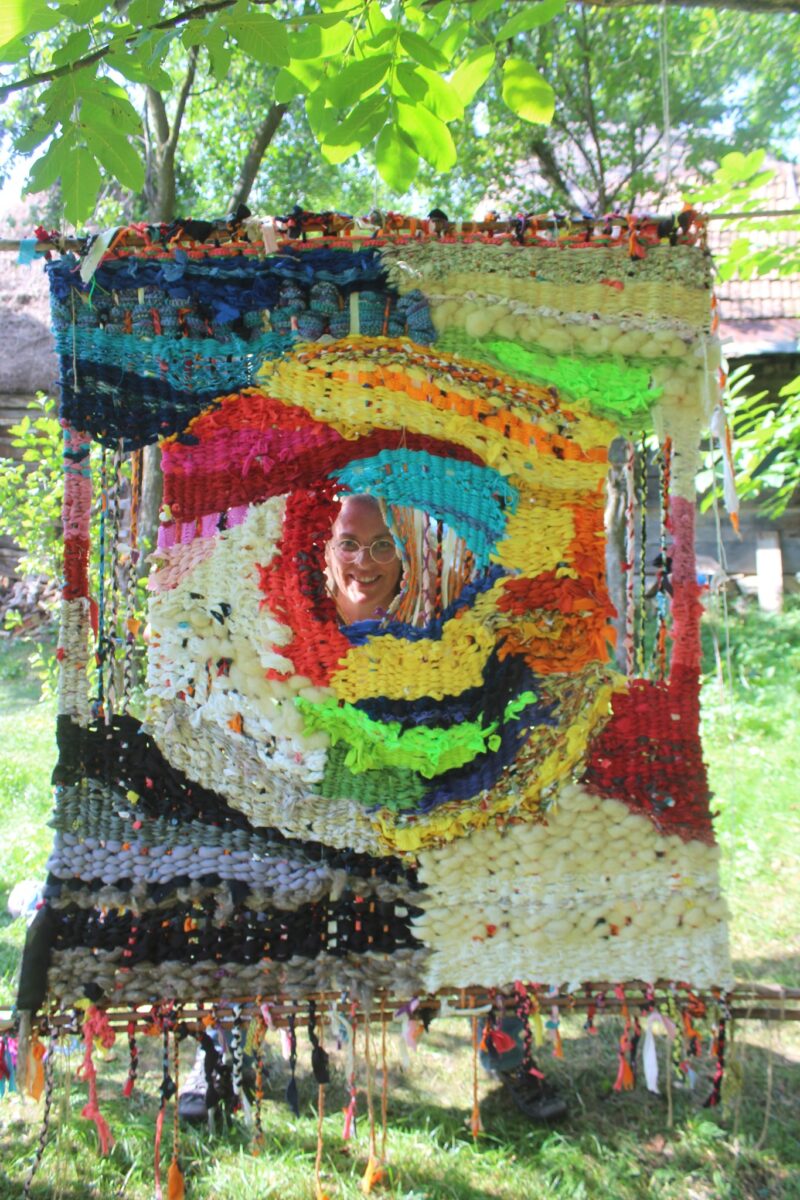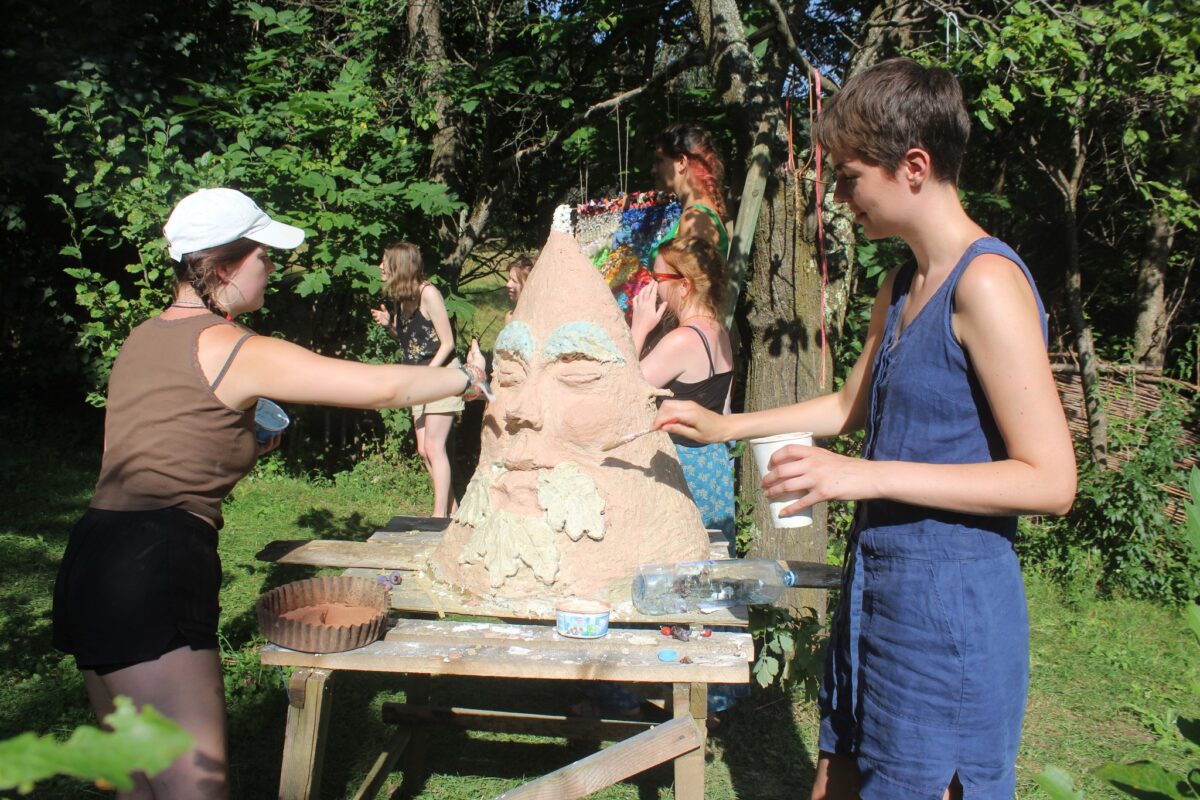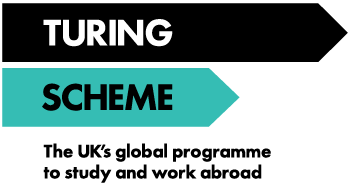| Status: | Full |
| Dates: | 29th July 2024 to 18th August 2024 |
| Duration: | 3 Weeks |
| UK Participants: | 10 |
| Location: | Romania – Various traditional Skills and Crafts |
| Monica Oprean Aleea Infanteristilor Nr.1/23, Sibiu 550362, Romania Host website |
The placement is hosted by “Satul verde”, an organization that works in traditional skills, cultural heritage, arts, environment and nature conservation. The placement will take place in the mountain village of Râmeț, (Alba county) and will familiarize participants with Romanian traditional textiles and other handicrafts ( such as icon painting, basket making). These crafts have known a period of revival in the last few years. Participants will work with skilled local crafts people to produce unique, original items of clothing & accessories.
You will work in a stupendous landscape, surrounded by hay meadows, mountains, and gorges. The commune of Rîmeț is characterized by a unique building feature that is its wooden log built houses, field barns and stores with thatched roofs. This feature is found in other mountainous areas of the Apuseni Mountains but in the commune of Rîmeț it is kept alive because the buildings are still in use and some skills for repairing remain.
A common characteristic of the thatched houses here is the fact that the smoke from the stove goes into the loft at a predetermined height and is allowed to fill the void, giving the loft the role of a smoke room. The smoke preserves the roof timbers and thatch (long straw) on the inside, making it resistant to fungi and insect attack and waterproof.. The thatched buildings are scattered all around the landscape, some of them are still in good condition, some need repair. Most thatched houses are still lived in but the inhabitants are old and usually retired.
location: Râmeț village, Transylvania, Romania
“Satul verde” has been working in the area since 2012, involving local people in its projects, educating young people from the area to recognise and appreciate their area and its cultural heritage.
The 2024 programme includes:
- Textile construction -loom weaving, sewing, cross- stitching;
- Upcycling- making bags, purses and accessories using traditional textiles & photoshoot at the end of the week;
- Basket making;
- Icon painting: following the Romanian tradition, reverse painting onto glass;
- Learning about wild plants used in dyeing and cooking;
- Traditional Romanian cooking;
- Cordage; the making of twine and rope from wild plant fibres and using the product for caulking;
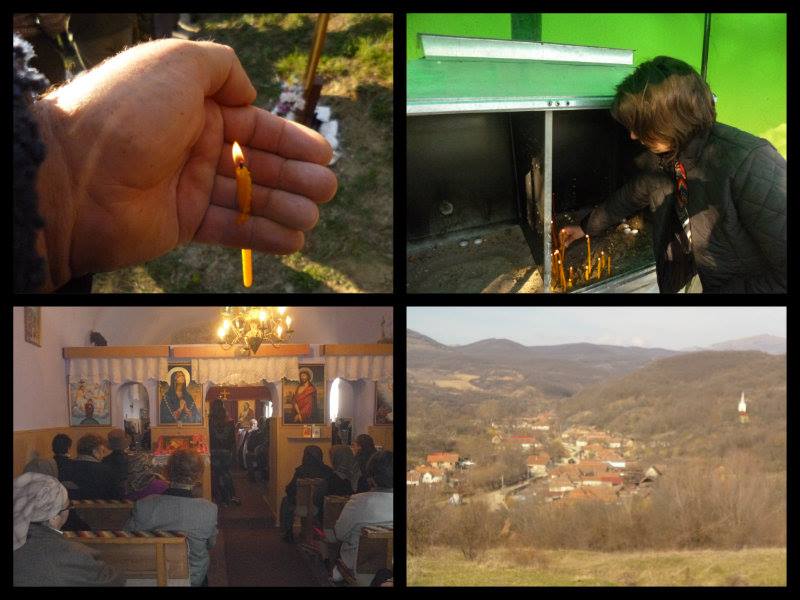
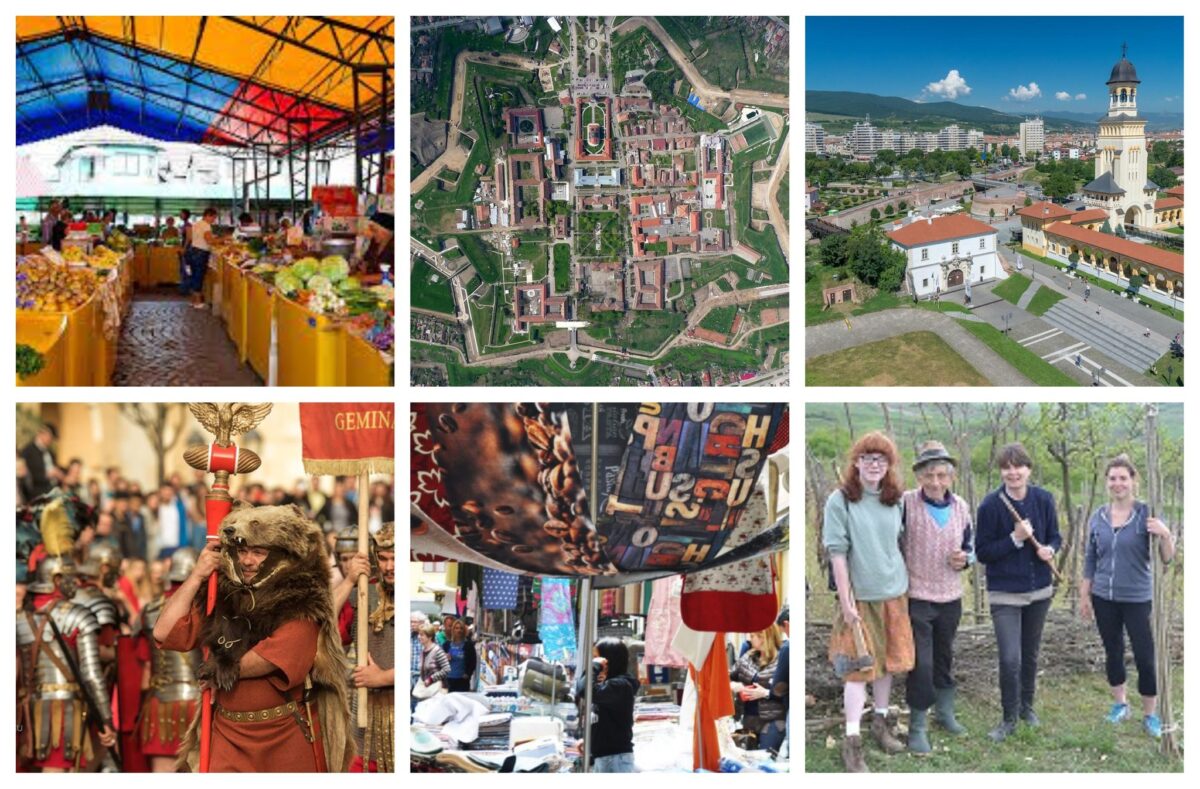
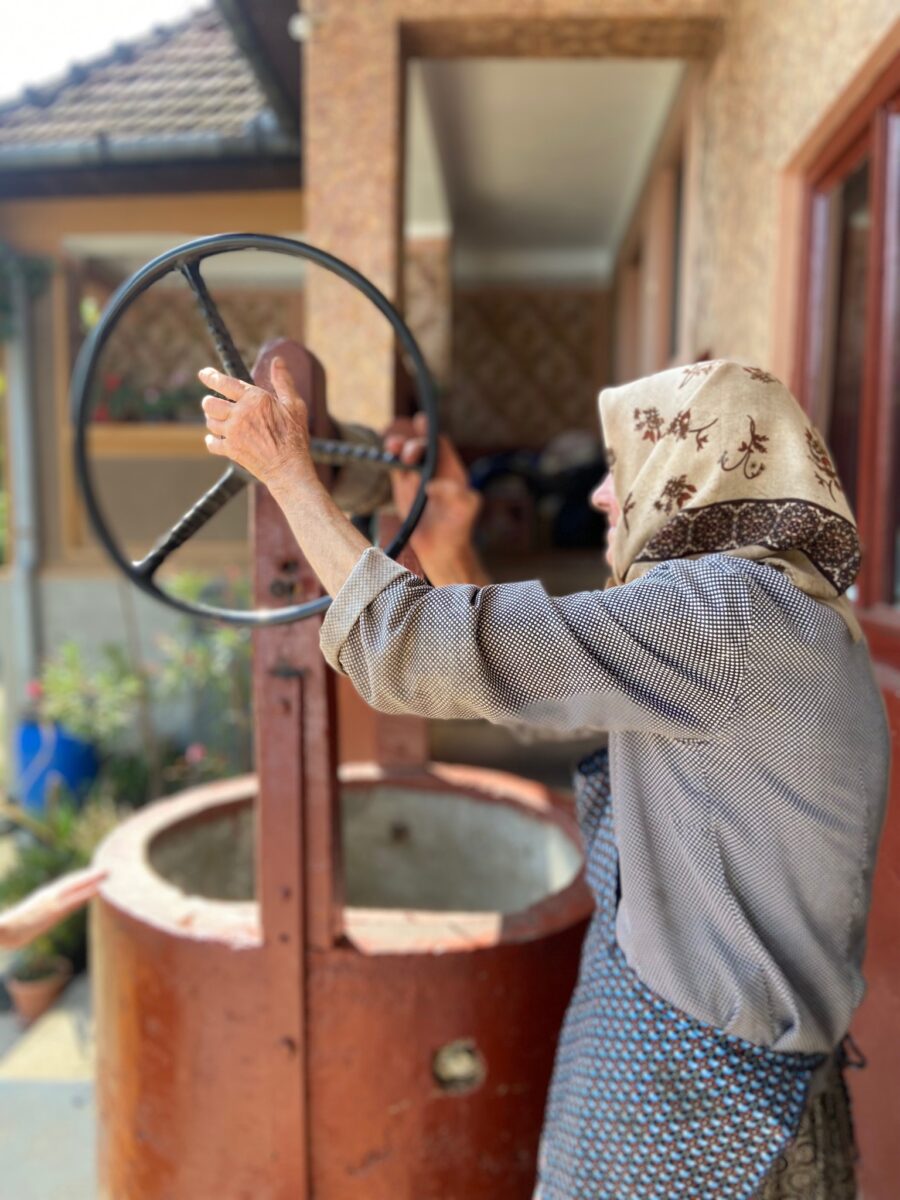
Participants will be accommodated in a local traditional farm in Rimet. This is a unique opportunity to experience living in a thatched house/barn and also to learn new skills and crafts. Breakfast and lunch is self catering, dinner is prepared by a lady from the village. Room sharing is necessary.
The training programme is from 9 a.m. – 5 p.m., Monday to Friday, with 40 minutes’ break for lunch.
Week 1: Discussions about the programme. Introduction to traditional Romanian textiles.
This week is about weaving & sewing. You’ll have a go at weaving on the loom and also peg looming and weaving with natural plant fibres. An introduction by Monica/Manuela sets the scene and includes a visit to hay meadows and wet areas around the village where you see a huge range of wild flowers and grasses and do some simple textile experiments including making cordage. This links to the peg-looming, weaving with natural plant fibres & learning about plants used in dyeing. Basket making ( wild clematis and/or willow) is also an activity that we’ll start this week.
Week 2: This is the “creation week”, when you’ll make bags, purses & accessories using old pieces of traditional textiles. It is recycling and upcycling old textiles. It’s a great way to give a contemporary look to old fabrics. Content is based in part on the project “Your Granny Can Fly” where “Satul verde” had a leading role in. We’ll have a photo shoot at the end of the week with the accessories that you created. The photos shoot will promote environmental and cultural sustainability.
Week 3: The last week of the placement concentrates on icon painting on glass. With a local artist you’ll learn the techniques of painting onto glass. The art of icon painting onto glass is mostly found in Transylvania, and it is believed to have started in Nicula Monastery. Each of you will paint one icon, then you can use your imagination to create your own painting onto glass.
Note: activities could intermingle & be carried out in a different order, subject to weather conditions & availability of people we’ll be working with.
